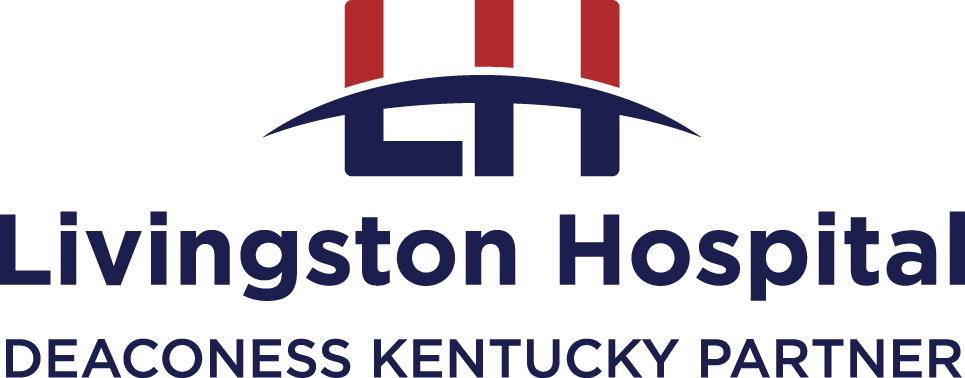

Bridge to Home Extended Care
Our Bridge to Home Extended Care Program was created as an alternative to nursing home or skilled nursing facility care. It’s designed for patients who no longer need full hospital care but aren’t quite ready to return home.
This service is often referred to as “Swing Bed,” which is a Medicare term, this patient receives skilled nursing care and short-term rehabilitation care while staying in the hospital. The bed classification/billing of that room can “swing” from acute care to skilled nursing and/or therapy rehabilitation services. Critical Access Hospitals, rural/community hospitals with 25 beds or less, are the only facilities authorized by Medicare to offer this service.
The Bridge 2 Home Extended Care Program are used for patients who need more time to heal and are in a transition period from an illness or during recovery for injury or surgery.
Who qualifies for Bridge 2 Home?
Patients who have been in the hospital for at least 3 midnights but require additional skilled nursing care and/or rehabilitation services on a daily basis qualify for this program. That includes patients who need:
Why choose Bridge 2 Home Extended Care (swing bed)?
The fact that extended/swing bed care is provided in a hospital setting—but without the added cost of inpatient care—results in a wide range of benefits:
The following services are available in the Bridge 2 Home Extended Care Program and provided according to each patient’s individual needs:
Payment & Insurance Coverage
If a patient meets the qualifications for the Bridget 2 Home Extended Care Program (3-day hospital stay and need for daily nursing and/or rehab), Medicare and most Medicare Advantage plans generally cover the cost.
Medicare Part A covers skilled nursing and/ or rehabilitation services for up to 100 days if:
Family involvement
Active participation of your family and friends is an essential part of your care. We encourage family members to ask questions, participate in discussion of your care plan and attend and participate in family education conferences.
Discharge planning
When you’re admitted, we also begin to plan for the day when you can be discharged from the Bridge to Home Extended Care program. We look ahead to anticipate what you will need when you leave the hospital and set goals based on those needs. As your care progresses, your physicians, nurses and therapists will determine an appropriate date for you to be discharged. As that day approaches, you and your family will finalize your plans with your social worker.
Spiritual care
Your spiritual well being is as important as your physical and mental health. Our goal is to provide excellent spiritual and emotional support during your stay. When you’re admitted, you or your family may give the person who registers you or the nurse the name of your place of worship.
This service is often referred to as “Swing Bed,” which is a Medicare term, this patient receives skilled nursing care and short-term rehabilitation care while staying in the hospital. The bed classification/billing of that room can “swing” from acute care to skilled nursing and/or therapy rehabilitation services. Critical Access Hospitals, rural/community hospitals with 25 beds or less, are the only facilities authorized by Medicare to offer this service.
The Bridge 2 Home Extended Care Program are used for patients who need more time to heal and are in a transition period from an illness or during recovery for injury or surgery.
Who qualifies for Bridge 2 Home?
Patients who have been in the hospital for at least 3 midnights but require additional skilled nursing care and/or rehabilitation services on a daily basis qualify for this program. That includes patients who need:
- daily physical, occupational and/or speech therapy
- care after orthopedic surgery, such as joint replacement or fractures
- to continue or complete IV Antibiotic therapy
- specialized treatment for complex wounds or wounds that won’t heal
- more education (after hospital discharge) related to disease management
Why choose Bridge 2 Home Extended Care (swing bed)?
The fact that extended/swing bed care is provided in a hospital setting—but without the added cost of inpatient care—results in a wide range of benefits:
- Shorter average length of stay when compared to skilled nursing facilities
- Lower staff-to-patient ratio (meaning more hands-on care)
- Physicians are available on site
- Onsite lab, radiology, respiratory and physical therapy services available for any needs that may arise
- Feels like a continued hospital stay and offers a more positive hope for continued recovery and return.
The following services are available in the Bridge 2 Home Extended Care Program and provided according to each patient’s individual needs:
- Skilled nursing care
- Physical, occupational and/or speech therapy
- Nutrition counseling
- Wound care
- Lab and imaging tests
- Respiratory therapy
- Medication counseling
Payment & Insurance Coverage
If a patient meets the qualifications for the Bridget 2 Home Extended Care Program (3-day hospital stay and need for daily nursing and/or rehab), Medicare and most Medicare Advantage plans generally cover the cost.
Medicare Part A covers skilled nursing and/ or rehabilitation services for up to 100 days if:
- Skilled care services are required daily
- Askilled nursing unit is the most appropriate area to provide these services
- The services are preceded by a hospital stay of at least three consecutive midnights, not including the day of discharge
- Admission to a skilled nursing unit is within 30 days of the hospital discharge (readmission is possible but only for the same condition, not for a new diagnosis)
- Admission to a skilled nursing unit is within 30 days of the hospital discharge and, if for the same reason, for admission
- A physician certifies that the patient requires such care
Family involvement
Active participation of your family and friends is an essential part of your care. We encourage family members to ask questions, participate in discussion of your care plan and attend and participate in family education conferences.
Discharge planning
When you’re admitted, we also begin to plan for the day when you can be discharged from the Bridge to Home Extended Care program. We look ahead to anticipate what you will need when you leave the hospital and set goals based on those needs. As your care progresses, your physicians, nurses and therapists will determine an appropriate date for you to be discharged. As that day approaches, you and your family will finalize your plans with your social worker.
Spiritual care
Your spiritual well being is as important as your physical and mental health. Our goal is to provide excellent spiritual and emotional support during your stay. When you’re admitted, you or your family may give the person who registers you or the nurse the name of your place of worship.

